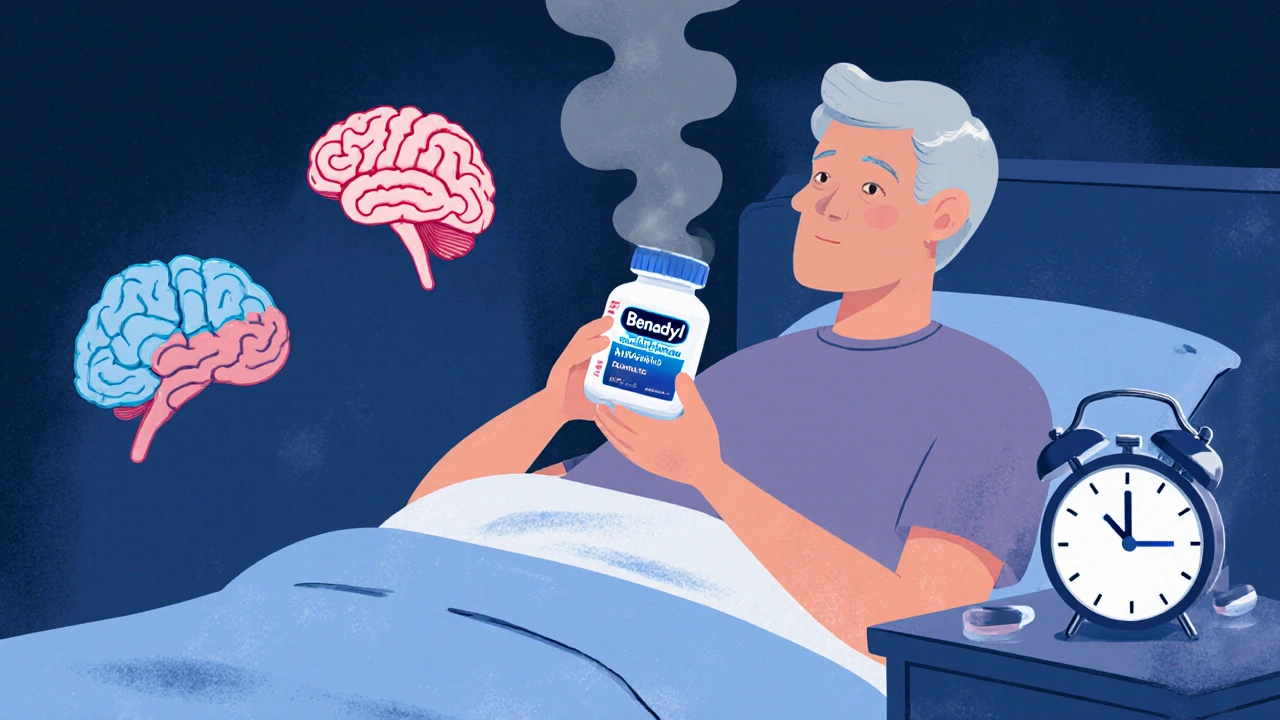OTC Sleep Aids: What Works, What Doesn’t, and What to Avoid
When you can’t fall asleep, OTC sleep aids, over-the-counter medications used to help with short-term sleep problems. Also known as sleep supplements, they’re often the first thing people reach for when insomnia hits. But not all of them are created equal—and some might be making your sleep worse over time.
Melatonin, a hormone your body naturally makes to signal it’s time to sleep. Also known as the sleep hormone, it’s one of the few OTC options with real science backing its use for circadian rhythm shifts, like jet lag or shift work. But if you’re taking it just to fall asleep faster, it often does little. On the other hand, diphenhydramine, an antihistamine found in brands like Benadryl and ZzzQuil. Also known as Benadryl, it’s the most common OTC sleep aid—but it doesn’t improve sleep quality. Instead, it knocks you out, then leaves you groggy the next day, and your body builds tolerance fast. Same goes for doxylamine, another antihistamine in Unisom SleepTabs. Also known as Unisom, it’s just as ineffective long-term and carries the same risks: dry mouth, dizziness, and next-day brain fog.
What’s missing from most OTC sleep products is real sleep support. These aren’t fixes—they’re temporary bandages. If you’re relying on them week after week, you’re probably ignoring the real cause: stress, poor sleep hygiene, or an underlying condition like sleep apnea or restless legs. Even worse, long-term use of antihistamine-based sleep aids has been linked to higher dementia risk in older adults, according to multiple large studies tracking users over years.
There’s a better way. Start with simple changes: dim the lights an hour before bed, skip screens, keep your room cool, and get up at the same time every day—even on weekends. If you need something extra, try magnesium glycinate or tart cherry juice, both shown in small studies to gently support natural melatonin production without the next-day hangover. And if insomnia sticks around for more than a few weeks? Talk to a doctor. It’s not weakness—it’s smart.
Below, you’ll find real reviews, comparisons, and science-backed advice on what OTC sleep aids actually do—and what you should be doing instead. No fluff. No hype. Just what works, what doesn’t, and why.

Nighttime Sleep Aids with Diphenhydramine: Risks and Safer Alternatives
Harrison Greywell Oct, 31 2025 11Diphenhydramine sleep aids like Benadryl and ZzzQuil may help you fall asleep quickly, but they carry serious risks including next-day grogginess, dementia, and impaired coordination. Learn safer alternatives like melatonin and CBT-I that actually work without the side effects.
More Detail